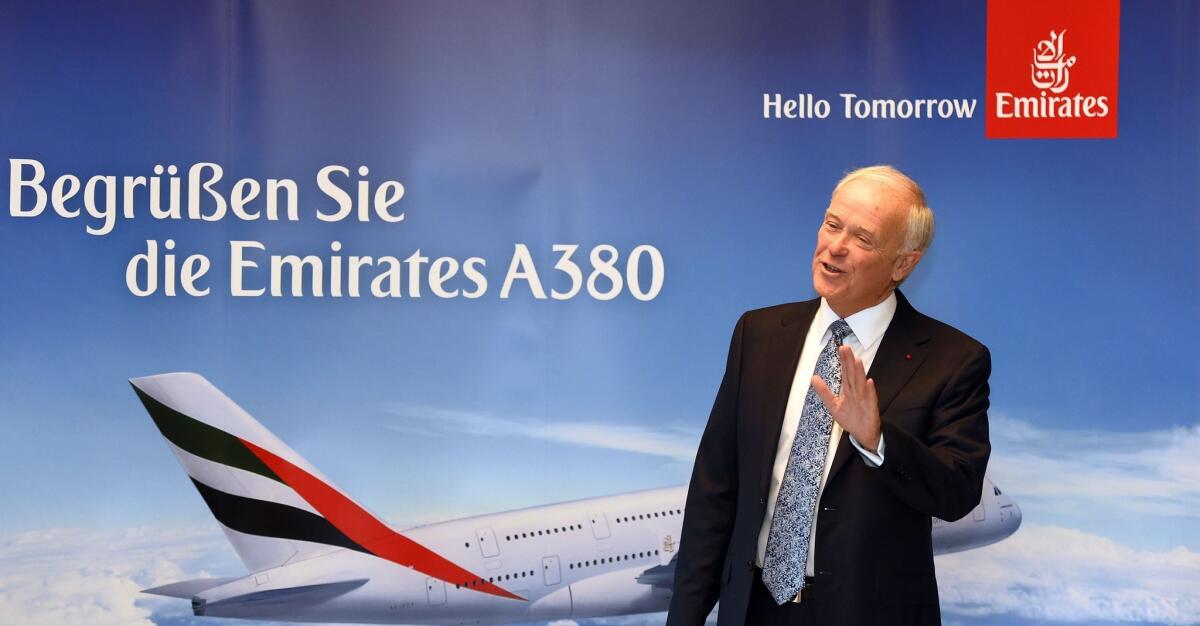War of words between Persian Gulf airlines and U.S. carriers heats up

- Share via
Two United Arab Emirates airlines fended off accusations Tuesday by U.S. carriers who say the state-owned airlines are competing unfairly by accepting multibillion-dollar government subsidies.
In separate news conferences, the leaders of Etihad Airways and Emirates airline rejected calls by United, Delta and American Airlines to restrict the Persian Gulf-based carriers from expanding into the U.S.
“We are not here to take down other airlines,” Tim Clark, president of Emirates, said in a news conference in Washington, D.C.
Clark added that Emirates contributes to the U.S. economy, saying his airline ordered 150 jets from Boeing in 2013, representing the most valuable aircraft order ever made.
At the U.S. Chamber of Commerce aviation summit, Etihad Airways President James Hogan said his airline has succeeded by offering great service, modern aircraft and competitive prices -- not because of subsidies.
“Etihad is a David, a David who’s been facing Goliaths since 2003, when we started,” he said.
United, Delta and American Airlines have accused Etihad, Emirates and Qatar Airways of competing unfairly -- in violation of a bilateral airline agreement -- by accepting $42 billion in government subsidies over the last decade from their owners, the United Arab Emirates and Qatar.
Clark dismissed those charges but said his airline needs time to investigate the allegations raised by the U.S. airlines in a 55-page report released in January.
Speaking at the chamber summit, Doug Parker, president of American Airlines, said the subsidies threaten “our ability to compete vigorously and fairly on the international stage.”
To read more about travel, tourism and the airline industry, follow me on Twitter at @hugomartin.
More to Read
Inside the business of entertainment
The Wide Shot brings you news, analysis and insights on everything from streaming wars to production — and what it all means for the future.
You may occasionally receive promotional content from the Los Angeles Times.










